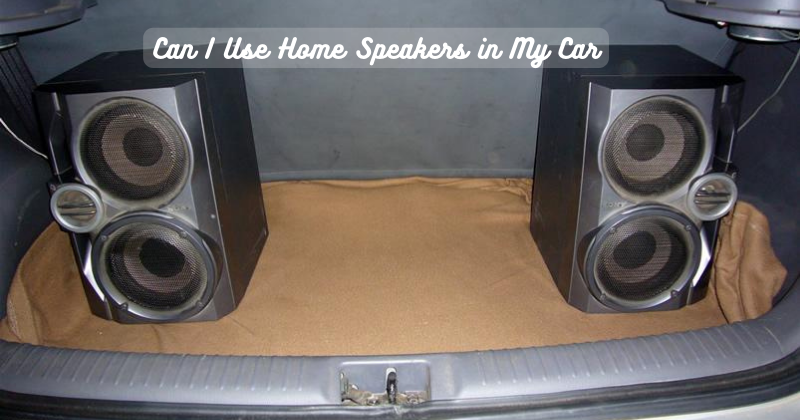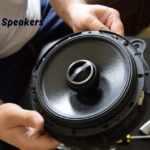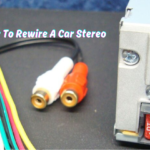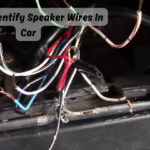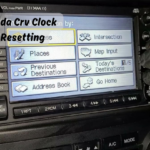With the rise in popularity of home speakers, many people are wondering if they can use them in their cars. After all, these speakers are compact, easy to use, and often produce high-quality sound. While it may seem like a simple solution to upgrade your car’s audio system, there are some important factors to consider before using home speakers in your vehicle.
In this article, we will discuss the compatibility of home speakers in cars, as well as potential challenges and solutions to using them. We will also provide some tips on how to optimize the sound quality and functionality of your home speakers if you do decide to use them in your car.
Factor that Affect Compatibility
There are a few factors that can affect the compatibility of home speakers in cars. These include the electrical components, size and design, and sound quality.
Electrical Components
One of the main differences between home speakers and car audio systems is their electrical components. Home speakers are designed to be used with standard household outlets, typically running on 110-120 volts. On the other hand, car audio systems use a 12-volt battery and require specialized wiring and amplifiers to function.
This means that simply plugging in your home speakers into your car’s cigarette lighter or using an adapter may not provide enough power for them to work properly. Furthermore, connecting them directly to your car’s electrical system can potentially damage both the speakers and your car’s electrical system.
Size and Design
Another factor to consider is the size and design of home speakers compared to car audio systems. Home speakers are typically larger and heavier, making it difficult to fit them in a car’s limited space. Additionally, they may not be designed to withstand the vibrations and movements of a moving vehicle, which can affect their sound quality and durability.
Sound Quality
While home speakers are known for their high-quality sound, they may not necessarily provide the same level of audio performance in a car. Car audio systems are specifically designed to produce optimal sound quality in a vehicle, taking into account factors such as road noise and wind interference. Home speakers may not be able to replicate this level of performance, resulting in distorted or poor quality sound in a car.
Challenges and Solutions
Given these factors, using home speakers in your car may pose some challenges. However, there are solutions that can help address these issues.
Power Source
As mentioned earlier, the difference in electrical components between home speakers and car audio systems can be a major obstacle. Also, the standard 12-volt battery used in cars may not provide enough power for home speakers to function at their full potential.
Solution:
One solution is to use a power inverter, which can convert your car’s 12-volt DC power into 110-120 volts AC power that home speakers require. This allows you to use your speakers without the risk of damaging either them or your car’s electrical system.
Mounting and Stability
To overcome the challenge of size and design, it is important to properly mount and secure your home speakers in your car. This can help minimize any vibrations or movements that may affect their performance.
Solution:
Investing in mounting brackets or stands specifically designed for car use can help ensure the stability of your home speakers while driving. Additionally, using soundproofing materials such as foam padding or rubber mats can also help reduce any unwanted vibrations and improve sound quality.
Sound Quality
To address the issue of sound quality, there are a few steps you can take to optimize your home speakers’ performance in a car environment.
Solution:
Firstly, make sure to position your speakers strategically for the best sound experience. Placing them closer to you and angled towards your ears can help enhance the audio. Additionally, adjusting the equalizer settings on your car’s audio system can also help compensate for any potential sound issues.
Other Considerations
Aside from the factors mentioned above, it is important to also consider the potential risks and legal implications of using home speakers in your car. Using them while driving can be a distraction and potentially lead to accidents, which may result in legal consequences.
Furthermore, modifying your car’s audio system with non-standard equipment such as home speakers may void its warranty or insurance coverage. It is important to consult with a professional car audio technician before making any modifications.
Can I Use Home Speakers In My Car?
The answer to this question ultimately depends on your personal preferences and the availability of solutions to overcome compatibility challenges. While home speakers may not be the most ideal choice for a car audio system, with careful consideration and proper adjustments, they can still provide an enjoyable listening experience.
However, it is important to keep in mind that using them in your car may come with certain risks and consequences. As such, it is recommended to thoroughly research and consult with professionals before making any decisions.
Also, keep in mind that investing in a car-specific audio system may ultimately be the better and safer option. It is important to weigh the pros and cons before deciding whether to use home speakers in your car or not.
Tips for Optimizing Sound Quality and Functionality
If you do decide to use home speakers in your car, here are some tips to help optimize their sound quality and functionality:
- Choose compact and lightweight home speakers that are specifically designed for car use.
- Properly mount and secure them using brackets or stands designed for cars.
- Use a power inverter to convert your car’s 12-volt battery to the required voltage for your home speakers.
- Position them strategically and adjust equalizer settings for optimal sound performance.
- Use soundproofing materials to reduce vibrations and improve sound quality.
- Consult with professionals before modifying your car’s audio system to ensure warranty and insurance coverage are not affected.
With these considerations in mind, you can make an informed decision on whether to use home speakers in your car and take necessary steps to optimize their performance.
Pros and Cons of Using Home Speakers in a Car
Pros:
- Can potentially provide a high-quality sound experience.
- May be more cost-effective compared to investing in a car-specific audio system.
- Allows for customization and personalization of your car’s audio setup.
Cons:
- Compatibility issues with the car’s electrical system may arise.
- Can be challenging to fit and mount properly in a car.
- May pose safety risks and legal implications.
FAQs
Are there any specific home speakers that are suitable for car use?
Yes, there are home speakers that are specifically designed and manufactured for car use. These speakers are usually more compact, lightweight, and have features to optimize their audio performance in a vehicle.
Can I use any type of power inverter or do I need a specific one for my home speakers?
It is recommended to use a power inverter that has the same or higher wattage rating as your home speakers. Additionally, make sure to choose an inverter with 110-120 volts AC output for compatibility.
Can I modify my car’s audio system with home speakers without consulting a professional?
It is not recommended to make any modifications to your car’s electrical system without consulting a professional first. This can potentially cause damage to your car and may void any warranties or insurance coverage. So, it is important to seek expert advice before making any changes.
Conclusion
Using home speakers in your car may not be the most practical choice, but with careful consideration and necessary adjustments, it is still possible to achieve a satisfactory audio experience. However, it is important to keep in mind the potential risks and consequences, as well as explore other options such as investing in a car-specific audio system.
Ultimately, the decision should be based on individual preferences and circumstances. So, make sure to thoroughly research and consult with professionals before making any decisions. With the right approach, you can enjoy your favorite music or audio in your car without compromising safety and functionality.
